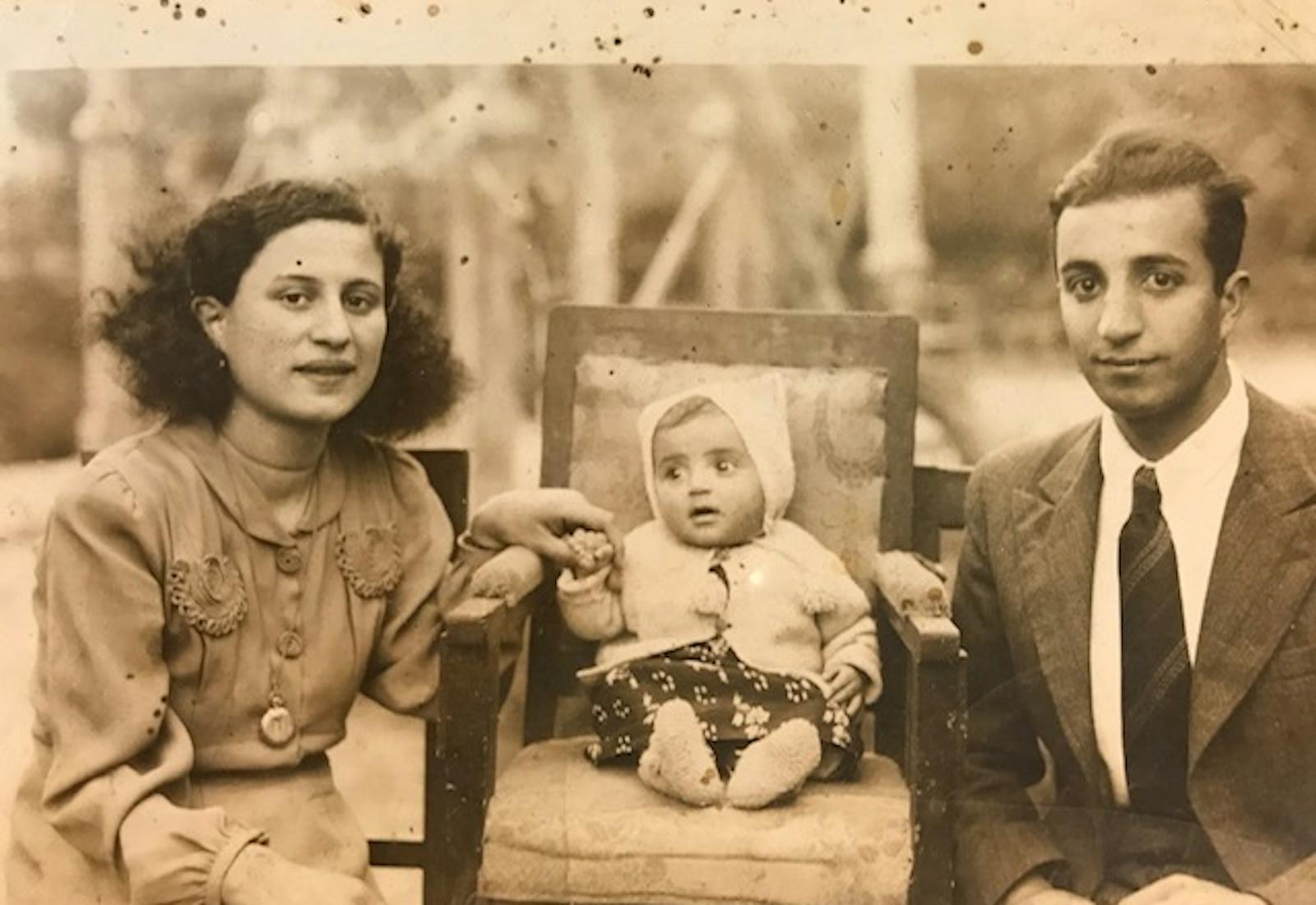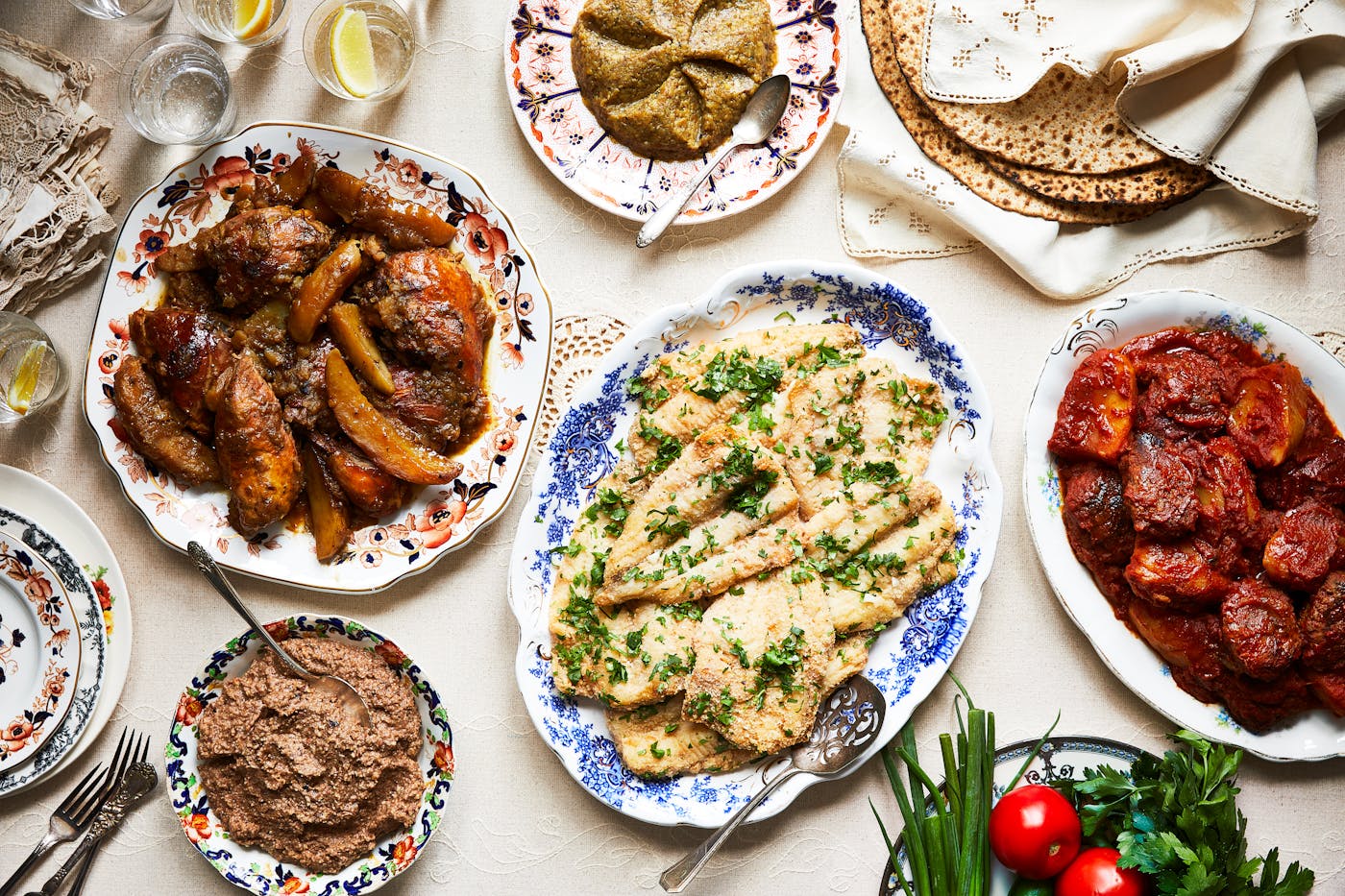Shared by Jennifer Ophir


The last time food stylist and chef Jennifer Ophir ate a meal cooked by her safta (Hebrew for grandmother) Miriam was at the end of Passover 1995 — but Miriam, sadly, wasn’t seated at the table. She passed away suddenly the day before, during chol hamoed, the time between the Seders and the final two days of Passover.
Her grandmother’s table was already set and Miriam’s menu of garlicky eggplant, her husband’s haroset, fried whiting with cilantro, katlet (meatballs in tomato sauce), and kov roghan (braised chicken with potatoes) was ready to serve. Even small tasks like setting the table and making the garlic water for the fish, which Miriam always left for Jennifer and a cousin to handle, were taken care of. “Everything from soup to nuts was prepped,” Jennifer says. It was as if safta Miriam knew.
Everyone in the family fell into their well rehearsed roles to help bring the food to the table and sat down for the meal. “It was a somber and painfully beautiful memory of the family sitting around the table — all eating silently. It felt like the last bit of her that we were going to have,” Jennifer adds. “Like her last goodbye to us.”
Jennifer grew up at that table in the Kew Gardens section of Queens, eating her grandmother’s dishes that drew on Bukharian, Afghan, and Persian traditions, reflecting the family’s complex journey from Mashad in Persia in the 1700s to Turkmenistan in the late 1800s, on to Uzbekistan in 1910, and back to Turkmenistan five years later. Their movements, Jennifer believes, were driven by a desire to be close to particular Jewish communities.
The oldest of 8 children, Miriam was born around 1930 in Turkmenistan, when it was part of the Soviet Union, and grew up in Afghanistan. When she was 15 years old, she married Jennifer’s grandfather Moshe, who was approximately a decade older than her. According to Jennifer’s great-uncle, teenage girls in their community were married young to protect them from being abducted. “That’s why they had to marry her off,” she explains.
In New York, where the family finally settled after a period in Tel Aviv, “Her life was dedicated to [cooking] — her language of love was food,” Jennifer explains. Miriam would always ask family members which dishes they wanted her to cook. She was also known in the local Jewish Afghan community for her hosting prowess, inviting strangers with nowhere to go for Shabbat to join her family at the table.
Jennifer lived in an apartment just a 10 minute walk away and spent every Shabbat and holiday at Miriam’s “majestic home,” as she calls it. But, looking back, Jennifer wishes she had spent more time in the kitchen with her grandmother. “I don’t know a lot of the techniques,” Jennifer says. “So 10 or 20 years ago I made sure to go to my aunt Hanna’s house on a Friday afternoon,” where she wrote down recipes for dishes like katlet (meatballs in tomato sauce) and baksh, a rice dish made in her family with dill and chicken giblets.
Today, Jennifer has hopes of creating a family cookbook with these recipes. She started a WhatsApp group for their cousins and over the past year the group has asked their mothers and aunts about the family dishes. “We’re kind of puzzling it all back together,” Jennifer explains. “It's such a deeply spiritual fulfilling thing that I can bring my safta’s memory back to life in this plate of food.”
